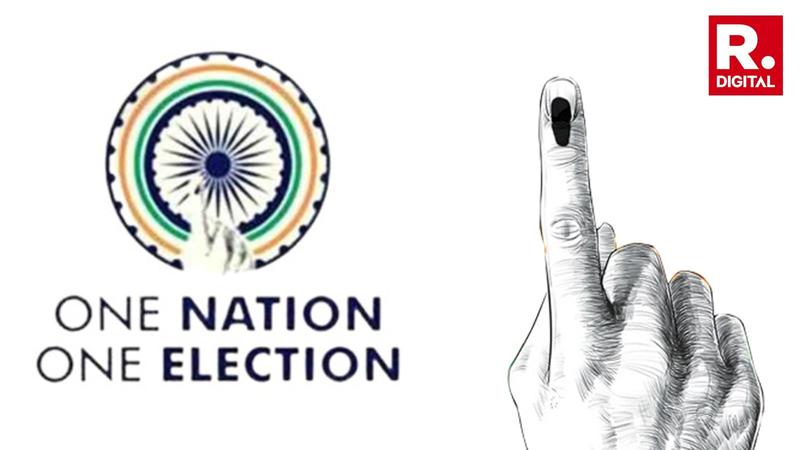Published 13:03 IST, December 17th 2024
BJP Delivers On One Nation One Election Promise: List of Fulfilled Objectives
One Nation, One Election bill introduced in Parliament by Union Minister Arjun Ram Meghwal, aiming to conduct simultaneous polls for LS and State Assemblies.

New Delhi: The Modi government on Tuesday introduced its much-anticipated 'One Nation, One Election' bill in the Lok Sabha, aiming to conduct simultaneous elections for the Lok Sabha and state assemblies across the country.
Union Law Minister Arjun Ram Meghwal presented the bill, which immediately drew sharp criticism from the opposition. Calling it a "direct attack on federalism," opposition leaders rejected the proposal, stating that it undermines the country's democratic structure.
The One Nation, One Election initiative marks yet another significant step by the Modi government in fulfilling its key poll promises. Some of the other major promises delivered by the BJP-led government include the implementation of GST, the abolition of Triple Talaq, the abrogation of Article 370, the construction of the Ram Mandir, and amendments to the Waqf Act.
The bill's introduction comes months after former President Ram Nath Kovind, who chaired a high-level panel on the subject, urged the Centre to build consensus on the initiative. Kovind stated that 'One Nation, One Election' is a national interest issue that transcends political boundaries.
Earlier, in September this year, the Union Cabinet had approved the proposal to hold simultaneous elections for Lok Sabha, state assemblies, and local bodies like urban municipal bodies and panchayats within a 100-day span. Prime Minister Narendra Modi hailed the move as “a significant step to strengthen Indian democracy.”
The bill will become law only after it is passed in both Houses of Parliament—Lok Sabha and Rajya Sabha. Let's look at the major promises made by Modi government and how much they succeed to full-fill it.
Financial Inclusion
Year of Promise: 2014
PM Modi promised to bring banking services to every household in India, in his first ever Independence Day address.
Year of Report Card: 2015
PM Modi announced the opening of 17 crore zero-balance accounts in just one year under the Jan Dhan Yojana, in 2015.
Current Status: 2024
The Jan Dhan Yojana has grown significantly, with nearly 53 crore bank accounts being operational, marketing a significant step in financial inclusion. This scheme has expanded access to credit and financial services across the country. The scheme has also reduced corruption in the country through direct benefit transfer of government schemes.
Rural Transformation
Year of Promise: 2014 and 2019
PM Modi first introduced the Adarsh Gram Yojana and promised electricity for over 18,000 villages. In 2019, he launched the Jal Jeevan Mission to provide tap water to rural areas.
Year of Report Card:
2015: Achieved significant progress in toilet construction.
2016: More than 2 crore toilets were built.
2017: Over 14,000 villages were electrified.
2021: Over 4.5 crore families started receiving piped water.
2023: Concrete roads are being constructed in villages.
Current Status: 2024
These initiatives have greatly improved rural infrastructure and living conditions, reflecting a successful transformation of village life.
Equal Stakeholders
Year of Promise: 2014
PM Modi emphasized the importance of building toilets to improve sanitation.
Year of Report Card: 2021
The government achieved its goal of constructing toilets in all households, contributing to significant improvements in public health and sanitation.
Current Status: 2024
The focus has shifted from women's development to women-led development, showcasing a transformative impact on gender equity.
Get Current Updates on India News, Entertainment News along with Latest News and Top Headlines from India and around the world.
Updated 13:03 IST, December 17th 2024




